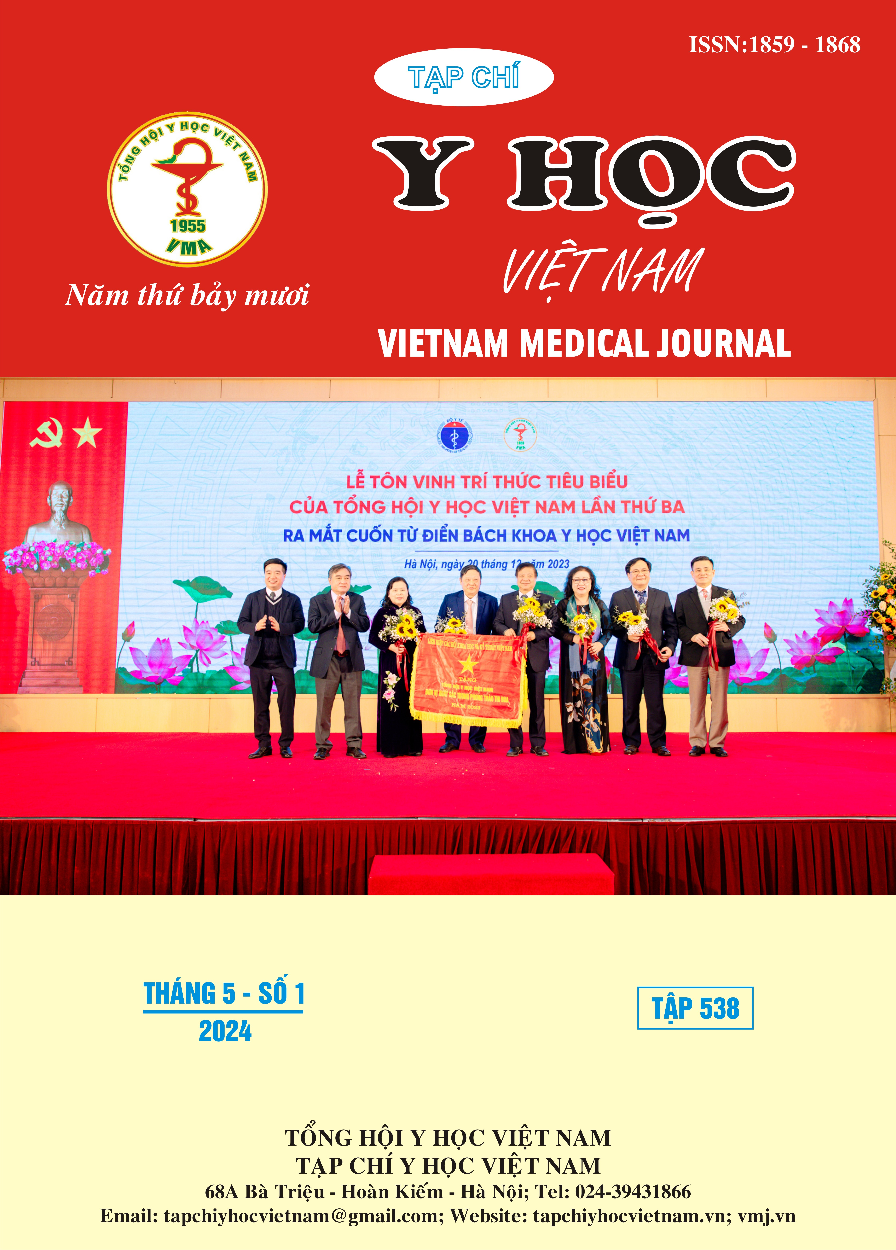THE NEEDS FOR PALLIATIVE CARE AMONG CANCER PATIENTS AT THE DEPARTMENT OF ONCOLOGY CONTROL AND TREATMENT, NATIONAL HOSPITAL OF TRADITIONAL MEDICINE IN 2023
Main Article Content
Abstract
Objective: To evaluate the palliative care needs among cancer patients undergoing treatment at the department of Oncology control and treatment, National hospital of Traditional medicine in 2023. Subject and method: A cross-sectional descriptive study on 303 inpatients with cancer at at the department of Oncology control and treatment. Result: The mean age of patients with cancer was 65.3 ± 11.2 years, and 76.2% were female, 64.7% were under high school. Cervical cancer was prevalent in 39.9% of patients, 24.1% were in stage III-IV, and the majority had no metastasis (96%). Approximately 58.4% had been undergoing treatment for more than 3 years, with an average hospitalization rate of 2.9 ± 1.7 times in the past year. Cancer patients expressed high needs for information regarding their health status, psychological support, faced difficulties in daily activities, financial constraints, dependency issues, and desired mild symptom care through Traditional Medicine methods. They had received encouragement from nursing care at a high rate (>80%). Conclusion: Cancer patients have high needs for disease-related information, psychological support, financial assistance, support in daily activities, and a strong preference for mild care using Traditional Medicine methods.
Article Details
Keywords
palliative care; needs; cancer; traditional medicine
References
2. Bağçivan, G., et al., Palliative care needs of the cancer patients receiving active therapy. Support Care Cancer, 2022. 30(1): p. 749-756.
3. Wang, T., et al., Unmet care needs of advanced cancer patients and their informal caregivers: a systematic review. BMC Palliative Care, 2018. 17(1): p. 96.
4. Ndiok, A. and B. Ncama, Assessment of palliative care needs of patients/families living with cancer in a developing country. Scand J Caring Sci, 2018. 32(3): p. 1215-1226.
5. Shea-Budgell, M.A., et al., Information needs and sources of information for patients during cancer follow-up. Curr Oncol, 2014. 21(4): p. 165-73.
6. Neal C., M.D., Schear R., The experience of stigma: Impacts and implications, in Global Perspectives on Cancer: Incidence, Care and Experience. 2015, ABC-CLIO: Santa Barbara. p. 41-53.
7. Wang, S.E., et al., Association Between Financial Distress with Patient and Caregiver Outcomes in Home-Based Palliative Care: A Secondary Analysis of a Clinical Trial. Journal of General Internal Medicine, 2022. 37(12): p. 3029-3037.
8. Lian, W.L., et al., Effectiveness of acupuncture for palliative care in cancer patients: a systematic review. Chin J Integr Med, 2014. 20(2): p. 136-47.
9. Yin, S.Y., et al., Therapeutic applications of herbal medicines for cancer patients. Evid Based Complement Alternat Med, 2013. 2013: p. 302426.


